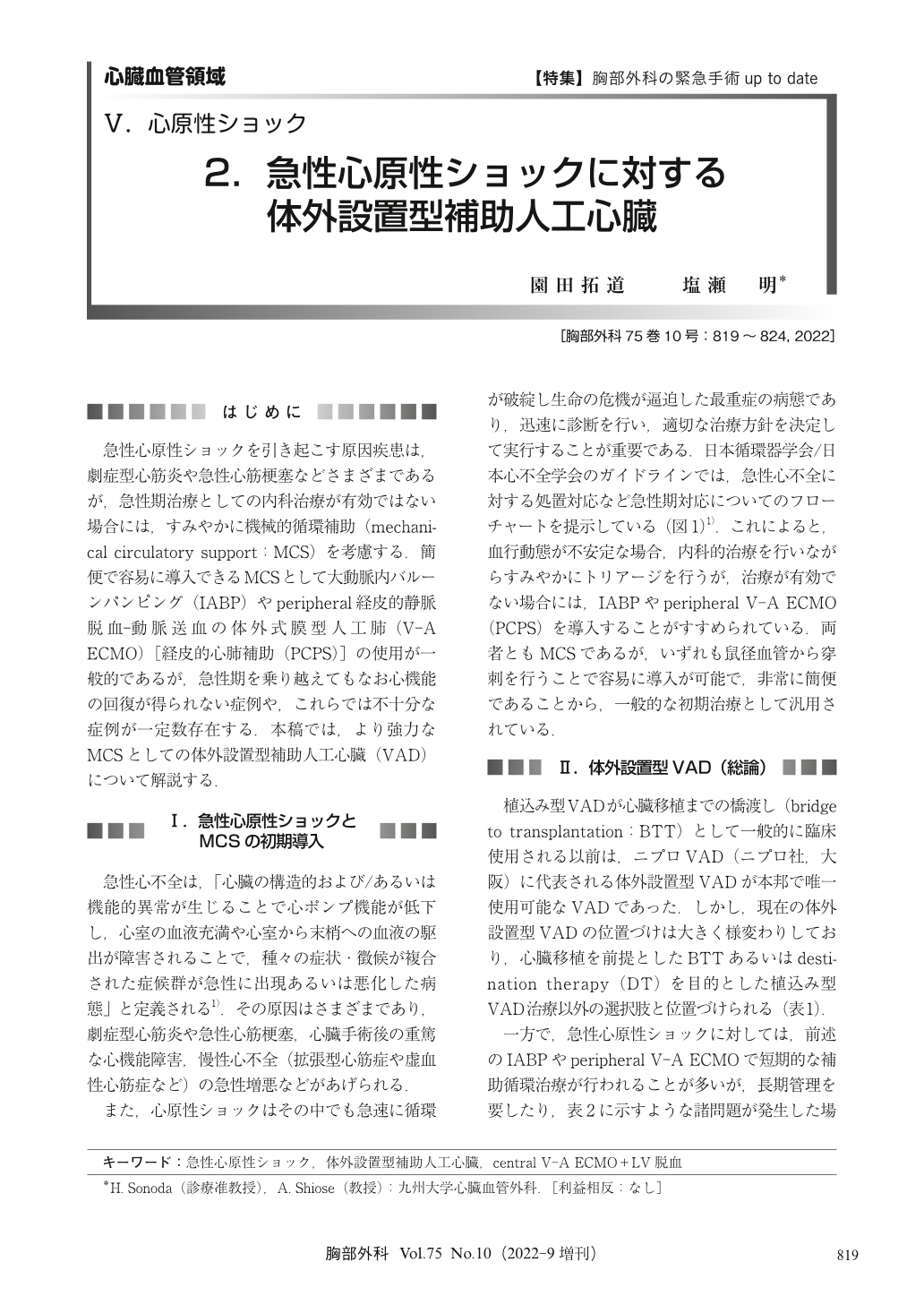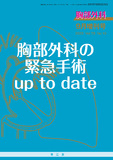Japanese
English
- 有料閲覧
- Abstract 文献概要
- 1ページ目 Look Inside
- 参考文献 Reference
急性心原性ショックを引き起こす原因疾患は,劇症型心筋炎や急性心筋梗塞などさまざまであるが,急性期治療としての内科治療が有効ではない場合には,すみやかに機械的循環補助(mechanical circulatory support:MCS)を考慮する.簡便で容易に導入できるMCSとして大動脈内バルーンパンピング(IABP)やperipheral経皮的静脈脱血-動脈送血の体外式膜型人工肺(V-A ECMO)[経皮的心肺補助(PCPS)]の使用が一般的であるが,急性期を乗り越えてもなお心機能の回復が得られない症例や,これらでは不十分な症例が一定数存在する.本稿では,より強力なMCSとしての体外設置型補助人工心臓(VAD)について解説する.
Various diseases cause acute cardiogenic shocks, such as fulminant myocarditis and acute myocardial infarction, but if medical treatment as an induction therapy is not effective, mechanical circulatory support (MCS) should be promptly converted. Intraaortic balloon pumping (IABP) and peripheral veno-arterial extracorporeal membrance oxygenation (V-A ECMO)[percutaneous cardiopulmonary support (PCPS)] are generally used as MCS that can be easily introduced via the groin. Still, there are some cases in which recovery of cardiac function cannot be achieved even after the acute phase therapies. This article will explain the extracorporeal ventricular assist device as a more powerful MCS after IABP or V-A ECMO as induction therapy.

© Nankodo Co., Ltd., 2022


